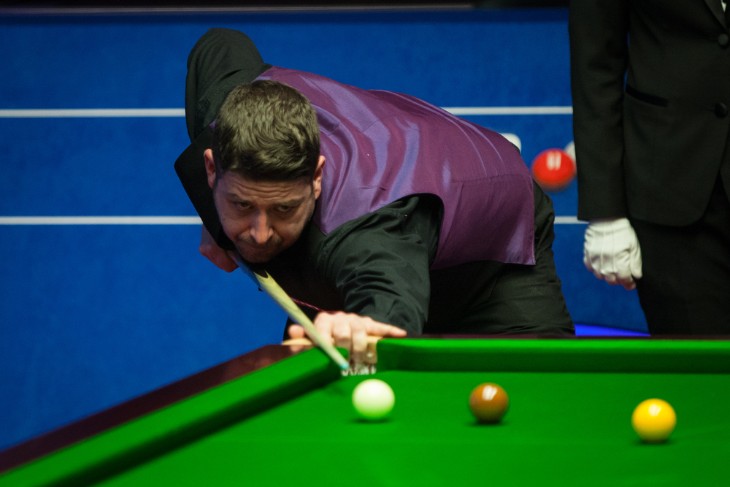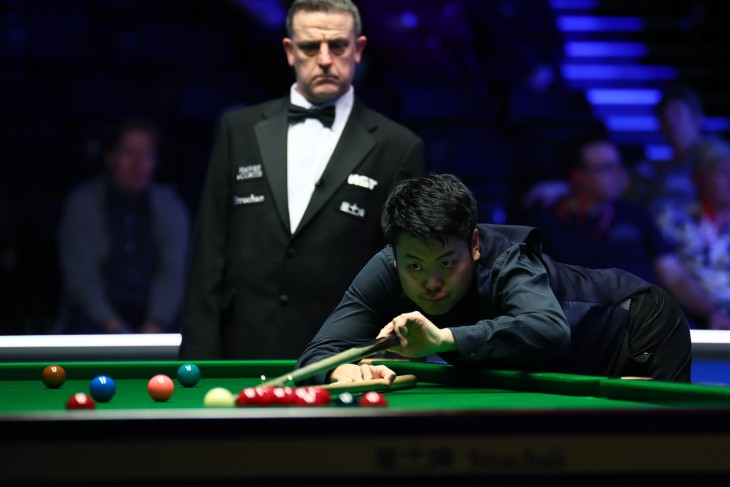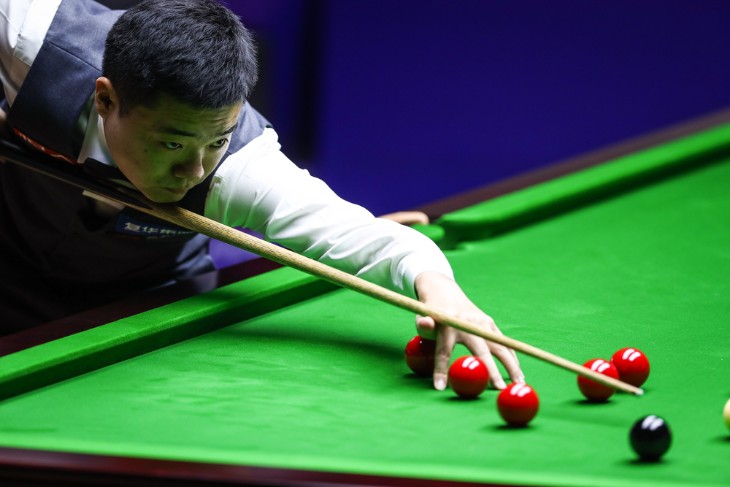In the intricate world of professional snooker, the journey to success is often marked by challenges and slumps. "Overcoming Slumps: Stories of Snooker Resilience" delves into the heart of this fascinating sport, exploring how top players have faced and conquered periods of struggle.
This article shines a light on the resilience and determination required to not just play snooker but to excel in it.
Understanding the Snooker Slump: A Common Challenge for Players
A slump in snooker is something most players face at some point. It's a time when they can't play as well as they usually do. They might miss easy shots or lose games they usually would win. This period can be tough and can happen to anyone, from beginners to top professionals.
A snooker slump is not just about playing poorly. It's also about how it makes players feel. They might lose confidence or start doubting their skills. This can make the slump last longer, as it's not just a physical problem but a mental one too.
Understanding a slump is key to getting over it. It's normal to have ups and downs in any sport. Recognizing that slumps are part of the game can help players deal with them better. It's important to remember that slumps are temporary. With the right approach, players can return to their best form.
During a slump, players often look at what might be going wrong. They might change how they practice or try new techniques. Some players take a break to clear their heads. Talking to coaches or other players can also help. Getting advice and support can be a big help in tough times.
The Psychological Battle: Staying Mentally Strong
Staying mentally strong is a big part of overcoming slumps in snooker. It's not just about how well you play; it's also about how you think and feel. Players who do well are often those who can handle tough times in their heads.
One key strategy is staying positive. It's easy to get down when things aren't going well. However successful players try to keep a positive mindset. They tell themselves they can turn things around. This positive thinking can make a big difference.
Another important part is focusing on the present. It's common to worry about past mistakes or future games. But the best players focus on the here and now. They concentrate on the current shot, not what went wrong before or what might happen next.
Practising mindfulness is also helpful. This means being fully in the moment, aware of what you're doing but not stressed about it. It can help players stay calm and focused, even under pressure.
Some players use visualisation techniques. They picture themselves playing well and winning. This can boost their confidence and help them play better.
Talking to coaches or sports psychologists can also help. They can advise on how to stay mentally strong. They can help players find ways to deal with stress and keep their heads clear.

Legendary Comebacks: Iconic Stories of Resilience in Snooker
The world of snooker has seen some amazing comebacks. These are stories of players who faced tough times but bounced back stronger. Their journeys show the resilience and grit needed to succeed in snooker.
One of the most inspiring comebacks is that of Ronnie O'Sullivan. Known for his incredible skill, O'Sullivan has faced his share of slumps. There were times when he struggled with form and personal issues. But he always came back to win big tournaments. His ability to overcome challenges has made him a legend in snooker.
Another great story is that of Judd Trump. There was a time when Trump wasn't winning as much as he wanted to. He worked hard, changed his approach, and focused on his mental game. This effort paid off, and he became one of the top players in the world.
Steve Davis's career also shows great resilience. In the 1980s, he was the best in the world. But then he hit a slump and stopped winning major titles. He didn't give up, though. He kept playing, adapting his game and remained a respected figure in snooker.
These stories are not just about winning games. They're about facing tough times and not giving up. They show that even the best players can have slumps, but they can come back stronger.
Techniques and Strategies for Overcoming Slumps
Overcoming a slump in snooker requires a mix of techniques and strategies. The best players use different methods to get back to their top form. Here are some common ways they do it.
One key strategy is changing how you practise. This could mean practising different shots or spending more time on weak areas. Sometimes, a small change in technique can make a big difference in performance. Players often work with their coaches to find the best approach.
Another important method is setting small, achievable goals. When you're in a slump, it's easy to feel overwhelmed. Setting small goals can help you see progress and stay motivated. It's about taking one step at a time.
Many players also focus on their physical fitness. Being in good shape can improve your game. It helps with stamina and concentration, which are crucial in snooker. Regular exercise and a healthy diet can have a big impact.
Taking a break can also be helpful. Sometimes, stepping away from the game for a short time can clear your mind. It can help you come back feeling refreshed and more focused.
Mental training is another important aspect. This includes techniques like visualisation, where players imagine themselves playing well. Positive thinking and mindfulness can also help players stay calm and confident.
Finally, learning from past performances is crucial. Players often watch videos of their matches to see what went wrong and what they can do better. This helps them understand their game and make necessary improvements.
The Role of Support Systems in Snooker Players’ Resilience
A strong support system is vital for snooker players facing slumps. It's not just about the player's efforts; the people around them play a big part too. This support can come from coaches, family, friends, and even fans.
Coaches are key in a player's support system. They provide technical advice, help with strategy, and give emotional support. A good coach can spot problems in a player's game and suggest ways to fix them. They also keep players motivated and focused, especially during tough times.
Family and friends also have an important role. They offer emotional support, which is crucial when a player is feeling down. They help players stay grounded and remind them of their strengths. Having someone to talk to outside of the game can be a big relief.
Fans can also be a source of support. Their encouragement and belief in a player can boost confidence. Knowing that people are cheering for you can make a big difference. It can give players the extra push they need to overcome a slump.
Sometimes, players also turn to sports psychologists. These professionals can help with the mental aspects of the game. They work on building mental strength, managing stress, and improving focus. Their support can be key in helping players get through tough periods.
Learning from Defeat: How Setbacks Fuel Future Success
In snooker, learning from defeat is key to future success. Setbacks are not just losses; they are lessons. Players who use their defeats to improve often become better and stronger.
After a loss, it's important to look back and understand what went wrong. Players review their matches to spot mistakes and weak points. This helps them know what they need to work on. It's not about feeling bad about losing. It's about using the experience to grow.
Adapting your strategy is another way to learn from defeat. Sometimes, a particular approach doesn't work, and it's necessary to try something different. This might mean changing how you play certain shots or thinking differently about the game.
Staying open to learning is crucial. The best players are those who keep learning, no matter how experienced they are. They know there's always something to improve. This mindset helps them turn defeats into opportunities to get better.
Resilience is also important. This means not giving up after a loss. It's about getting back to practice, trying again, and keeping a positive attitude. Resilient players don't let defeats bring them down. Instead, they use them as motivation.
Finally, talking to others can help. Discussing the game with coaches, other players, or mentors can provide new perspectives. It can help players see things they might have missed and learn different strategies.
The Mental Resilience of Snooker Champions: A Closer Look
The mental resilience of snooker champions is a key part of their success. It's what helps them stay strong during tough matches and bounce back from defeats. Let's take a closer look at how they do it.
Firstly, focus is crucial. Champions stay fully concentrated during their games. They don't let distractions bother them. This level of focus helps them make accurate shots and keep their cool under pressure.
Confidence is another important factor. Top players believe in their skills, even when things get tough. This confidence doesn't come from always winning. It comes from knowing they have prepared well and can trust their abilities.
Staying calm is also key. Snooker champions manage their emotions well. They don't let frustration or nerves get the better of them. This helps them think clearly and make good decisions during the game.
Adaptability is another strength of these players. They can change their strategy if things aren't working. This flexibility allows them to handle different types of opponents and situations.
Handling pressure is something all champions do well. They know how to deal with the high expectations and big moments. They use pressure as motivation to perform at their best.
Finally, learning from experience is vital. Champions use their past games, both wins and losses, to improve. They look at what worked and what didn't and use this knowledge to get better.

Overcoming Physical Challenges: The Role of Fitness in Snooker
While snooker may not be as physically demanding as some other sports, fitness plays a crucial role in a player's success. It's not just about potting balls; it's also about endurance, focus, and overall well-being.
Physical fitness contributes to a player's stamina. A snooker match can be long and mentally draining. Being physically fit helps players stay alert and maintain their concentration throughout a match. This endurance can be the difference between winning and losing close games.
Good fitness also aids in posture and balance. Maintaining a stable stance is essential for accurate shots. A fit player can position themselves correctly and hold their posture throughout the game. This consistency is vital for snooker excellence.
Additionally, fitness impacts mental health. Regular exercise is known to reduce stress and improve mood. Snooker players who stay physically active often handle pressure better and make better decisions under stress. Mental resilience and clarity are crucial for success in the game.
Flexibility is another aspect of fitness that snooker players benefit from. The game requires players to reach and bend at various angles. Being flexible allows players to execute shots with precision and ease.
Lastly, fitness supports overall well-being. A healthy body leads to a healthy mind. Players who take care of their physical health are more likely to have the energy and motivation to practice and compete consistently.
The Future of Snooker: Embracing Challenges and Building Resilience
The future of snooker holds both challenges and opportunities. To thrive in the evolving world of this sport, players must embrace these challenges and build resilience.
One challenge is the increasing level of competition. Snooker is growing globally, with talented players emerging from various countries. This means that players must continuously improve to stay competitive. Embracing this challenge means dedicating oneself to constant growth and refinement of skills.
Another challenge is the demand for mental resilience. With more tournaments and higher stakes, players face greater pressure. Those who can handle the mental challenges of the game will have a competitive edge. Building resilience involves mental training, staying focused, and seeking support when needed.
Technology is changing the game as well. From cue technology to data analysis, players must adapt to new tools and techniques. Embracing these advancements can give players an advantage in their performance.
Furthermore, the sport's accessibility is growing through digital platforms. Streaming and online communities provide opportunities for players to connect with fans and fellow players worldwide. Embracing this digital landscape can help players build their presence and engage with a broader audience.
Final Verdict
Snooker players exemplify enduring spirit. They face slumps, setbacks, and challenges with determination and resilience. Whether it's through mental strength, physical fitness, or adapting to the changing landscape of the sport, snooker players continue to excel.
Their ability to learn from defeats, stay focused under pressure, and embrace competition sets them apart. The future of snooker holds promise, and players who carry this enduring spirit forward will shape the game's evolution.
In the end, it's not just about potting balls; it's about the unwavering spirit of snooker players that keeps the sport alive and thriving.
For more information:




.webp)


 (1).webp)




















